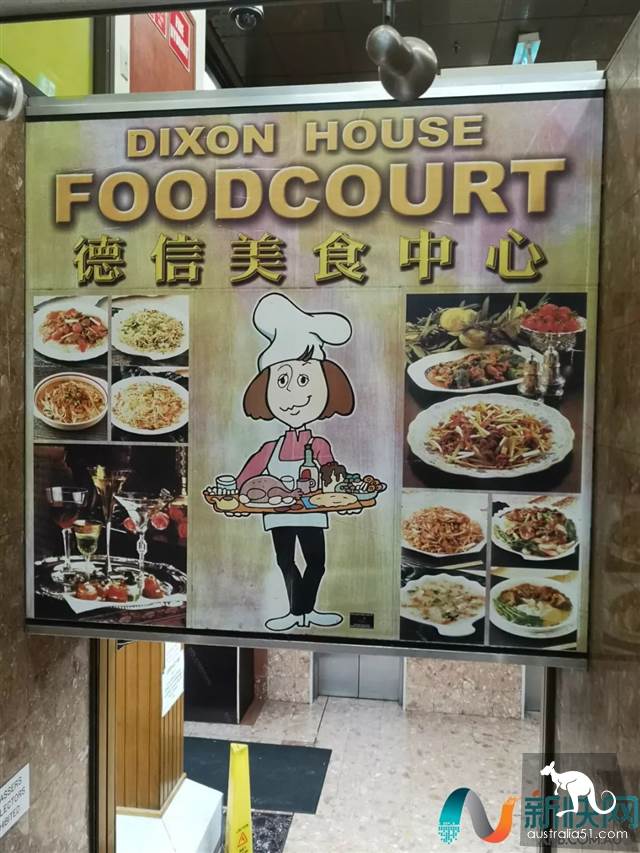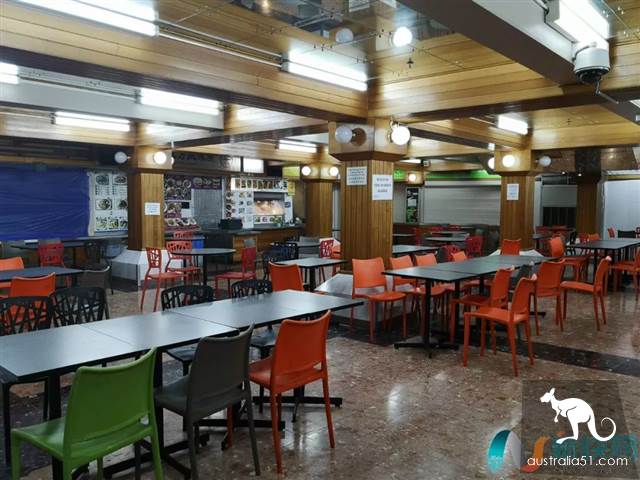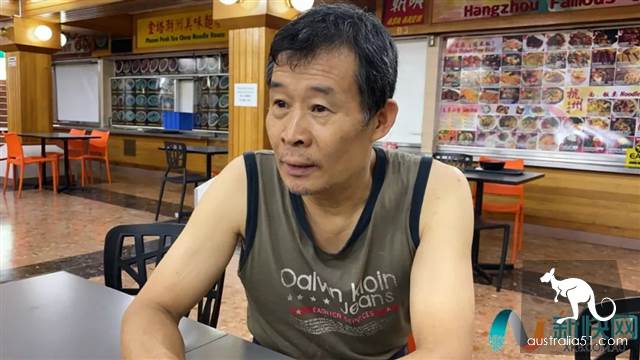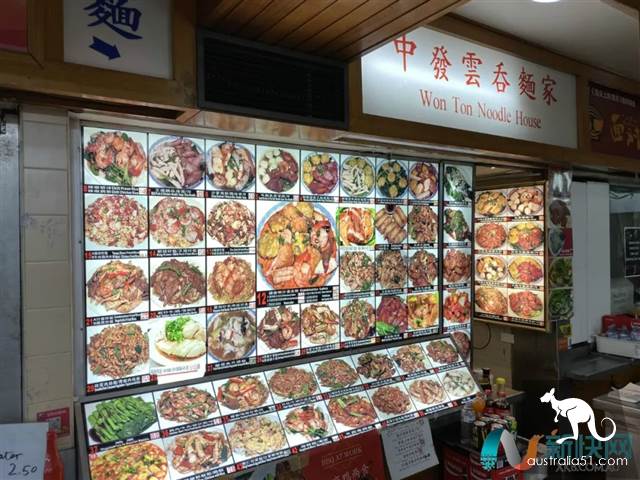
A sign of the food center in front of the Texaco building. (New Express Media Journeys)
There`s a food centre on the minus-floor of Dexin House in Sydney`s Chinatown, which has two entrances, both very low-key and unobtrusive, easy to miss. The renovation here also maintains the style of the building just built in the 1980s. There are a lot of restaurants and restaurants, and the food is fast, you can taste food from all over Asia: iron plate, dumplings, Cantonese fast food, fresh juice beverage shop. Many choices. Whether it`s dating three or five friends or having dinner with family members, the long table here can meet the needs of a variety of diners. The most important thing is that it`s a good and cheap place to eat a steaming meal for about 10 yuan. Not only do people with Asian backgrounds enjoy eating here, but locals and travelers have chosen to experience authentic Chinatown cuisine.
Even five years ago, when sydney didn`t have so many restaurants to choose from, it was still crowded and crowded, waiting in line to order or wait for a table and chair at the table.

a depressed food center. In a twinkling of an eye, by the end of 2019, thanks to the closing of the sweet cafe, the gate of the dexin mansion is back in the spotlight. Journalist once again explored the dexin building and found that many of the three-story dexin buildings were vacant, with billboards for rent on the glass that had lost their former prosperity and brilliance.

Coming to the food center on the negative first floor of the Texaco building, the same depression emerged, and there were few diners at mealtimes. New express media jornalist interviewed one of the good location in the lobby of the gourmet fast food restaurant, zhongfa yuntun family, boss mr. wu interview, mr. wu is authentic guangdong, cook in guangdong, bring authentic guangdong cuisine to sydney. Mr. Wu said," My wife and I have been opening a shop here for 12 years, and we have had a lot of different kinds of restaurants in the last year or two. "
Indeed, over the past few years, there have been frequent changes in Sydney`s inner-city restaurants, with a hundred flowers blossoming, in the CBD, about the Chinese food people can eat all over the country, and can meet a variety of consumer demands. People want fresh, want to try fresh things, every opening of a new store, will usher in the city`s spectacular, queue long winding, have to marvel at it.

The middle hair cloud swallows the noodle family sign to be striking, mainly is returns the guest to look after. Mr. Wu said:`My guests are mainly of the class, the students and the tourists, now we basically rely on the old customers to support, our food is less oil and health, the characteristics are cloud noodles and a variety of "wok" fried rice and dry fried cattle river, many guests have become a repeat customer. Many foreign students used to be his customer group, but because of changes in Australian policy, the green card is now very difficult to get, resulting in fewer foreign students. In addition, foreign students are young groups, young people like to eat spicy, prefer Sichuan, Spicy Hot Pot and hot pot, while Cantonese cuisine is mainly light, the market exists in the spicy restaurant stores to divert guests. These points more or less affected his business.
According to Mr. Wu, his shop owner runs Cantonese food from 11:30 to 8:30, without rest for seven days a week. But even so, the business is pretty bleak. Mr. Wu also witnessed the rise and fall of the Dexin Building over the past 12 years, and also witnessed the opening and opening of a shop in the Dexin Building, which is now closed.
Mr. Wu doesn`t plan his son to take over his business because it`s really hard to do food and drink. He felt as fit as ever, and did not know how long he was going to last. When he heard that the owner of the sweet coffee house wanted to retire and have a different life, he also had a tendency to retire.
Chinatown used to be the home of the Chinese people, but the decline of Sydney`s Chinatown has become more and more obvious in recent years. This is the memory of the Chinese and overseas Chinese, hoping not to fade away because of the depression.

